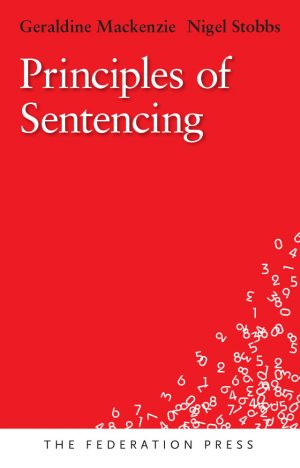Defend Yourself is a book for people who wish to defend a charge in court and to better understand court processes. The third edition has been fully revised to reflect constant changes in the various laws and the author has widened the scope, using examples from New South Wales and Victoria to illustrate principles of law.
The book acts as a guidebook with signposts to further information and assistance on court processes and procedures. Updated content includes: arrest and questioning; bail – release pending trial; lawyers and self-representation; court procedure; pleas; hearing and trials; how to research and prepare for a criminal case; evidence; sentencing; appeals; a glossary of legal terms; diagrams of a magistrate’s court, a typical jury trial, and the hearing or trial process; information on character references and warrants; an explanation of case law references; a reading list and contact points for further information and assistance.
It will be of interest to those who find themselves in the strange and often intimidating environment of the courtroom.
Introduction
Arrest and questioning
Identification and arrest
Police questioning
Detention for questioning
Custody managers
Taking forensic samples
Charging
Bail – release pending trial
Your entitlement to release on bail
Conditions on bail
Failing to appear in court
Lawyers
Lawyers, money and ethics
Do I need a lawyer?
Self -representation
Court procedure
Putting things on the record
Court appearances
Court protocol
Some serious charges can be heard summarily
Pleas
Considering the implications of a guilty plea
When should I plead guilty?
When should I plead not guilty?
After a plea
Hearings and trials
Hearings
Committals
Trials
Preparation
Collect evidence early
Obtain charge details
Research the law
Consider your defences
Common law defences
Statutory defences
Jury defences
Investigate the prosecution evidence
Use subpoenas
Apply to have the charges dropped
Sources of legal information
Evidence
Evidence and witnesses
Proof
Examination
Cross-examination
Re-examination
Some important categories of evidence
Making objections
The ‘voir dire’
Sentencing
Evidence and submissions
Possible sentences
Sentences of juveniles
Costs
Appeals
How to appeal
Application for annulment
Appeals against convinction
Appeals to higher courts
Appeals against sentence
Special inquiries in New South Wales
Further Information
A Jury trial – typical court set-up
Magistrate’s Court – typical court set-up
Hearing or trial Process
Character references
Warrants
Finding the law
Understanding case law references
Legal information at your local library
Further reading
Contact points
Glossary
Index






